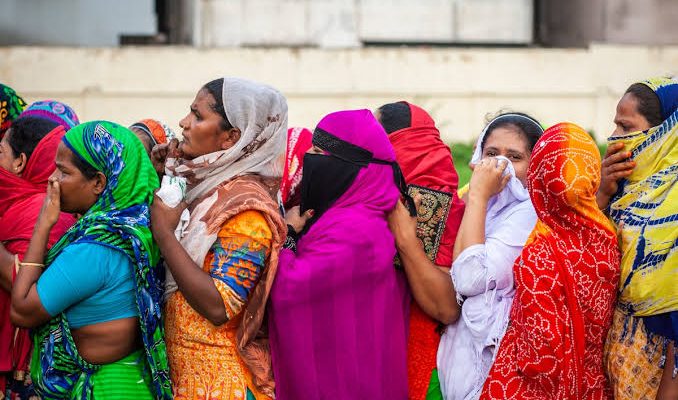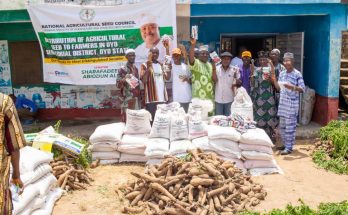Following a dramatic political upheaval that saw the ousting of Bangladesh’s long-time leader, environmental activists are urging the newly installed interim government to prioritize climate change amidst the urgent task of restoring stability in the nation.
On August 8, Nobel Laureate Muhammad Yunus was sworn in as interim leader after widespread student protests over job scarcity escalated into a broader uprising. The unrest, which resulted in hundreds of deaths, forced former Prime Minister Sheikh Hasina to flee the country. With Yunus now at the helm, there is growing concern over how long his technocratic government will remain in power, as legal experts speculate it could be a year or more. Yunus, 84, has indicated his desire to implement “vital reforms” in the judiciary, security forces, and bureaucracy before organizing new general elections.
However, amid the numerous challenges facing the new administration, experts and environmentalists are warning that the critical issue of climate change must not be sidelined. Bangladesh is ranked as the ninth-most climate-vulnerable nation globally by the World Risk Index, with its food supplies, human health, and overall livelihood threatened by extreme weather events.
“We must convey to investors and partners, both domestically and internationally, that we will continue to build on our achievements in tackling climate hazards and disasters, and expedite our energy transition,” said Zakir Hossain Khan, Chief Executive of the Dhaka-based think tank Change Initiative.
Yunus, who was awarded the Nobel Peace Prize in 2006 for his pioneering work in microfinance, has appointed a council of over 20 advisers to function as his cabinet. Among these advisers is Syeda Rizwana Hasan, a prominent lawyer and environmental activist, who will oversee the environment and climate portfolio.
Environmentalists are optimistic that Hasan’s strong activist background will ensure that climate policies are prioritized under Yunus’s administration. Although Hasan has pledged to address pollution, protect wetlands, and curb single-use plastics, she has yet to detail the next steps for Bangladesh’s climate strategy.
One major focus for activists is the creation of green jobs, especially as the nation grapples with an ongoing jobs crisis. “Now that we have one of our fellow environmental activists in charge, our expectations for effective climate action that benefits ordinary Bangladeshis have risen,” said Sohanur Rahman, Executive Coordinator of YouthNet for Climate Justice. Rahman, whose colleague Ishtiak Ahmed Srabon was tragically killed during the August 4 protests, emphasized the need for a “just energy transition” as a potential solution to the jobs crisis.
The previous government had set ambitious goals, including the creation of 40,000 green jobs by 2030 and generating 40% of electricity from renewable sources by 2041. However, progress has been slow. Rahman believes there is significant potential for creating tens of thousands of green jobs by rapidly scaling up renewable energy and pausing the expansion of fossil fuel power.
A significant challenge for Bangladesh is the estimated $230 billion required over the next 25 years to address recurring climate-induced disasters such as floods, cyclones, and salinity intrusion. Currently, these extreme weather events are costing the nation approximately $2 billion annually.
To meet these challenges, the Bangladesh Climate and Development Platform (BCDP) was established in December, in collaboration with multilateral development banks and international aid agencies, to mobilize investment in the country’s climate efforts. For the BCDP to succeed, Zakir Hossain Khan stressed the importance of training and retaining skilled workers to deliver climate support where it is most needed. “We need to ensure that key climate institutions remain stable and effective during the transition,” Khan warned.
As Bangladesh prepares for the upcoming U.N. climate conference (COP29) in November, which will determine a new financial package for Global South countries grappling with climate change, there is a pressing need for continued and energetic advocacy. Despite Sheikh Hasina’s authoritarian turn in recent years, Bangladesh has been recognized internationally for its strong stance on climate adaptation and its leadership in the Climate Vulnerable Forum, a coalition of 68 low and middle-income countries advocating for fair climate finance.
Mizan Khan, a visiting fellow at Brown University and leader of the LDC Universities Consortium on Climate Change, highlighted the importance of securing more grant-based climate finance to avoid debt distress. “While Bangladesh is not yet at high risk in terms of climate-related debt sustainability, we should advocate for a much larger share of grant-based finance for adaptation,” Khan said.
Bangladesh will also be required to submit new nationally determined contributions (NDCs) for reducing greenhouse gas emissions by 2025. Rahman of YouthNet expressed hope that the next NDC will be a “people’s NDC,” incorporating more grassroots participation and youth voices in the decision-making process.
As Yunus navigates Bangladesh’s evolving political landscape, observers suggest that an inclusive approach to climate change could contribute to national reconciliation. “As Bangladesh revises its plans for a greener economy, it needs to integrate a just transition action plan that works for everyone, including women, youth, and migrants,” Rahman emphasized.




